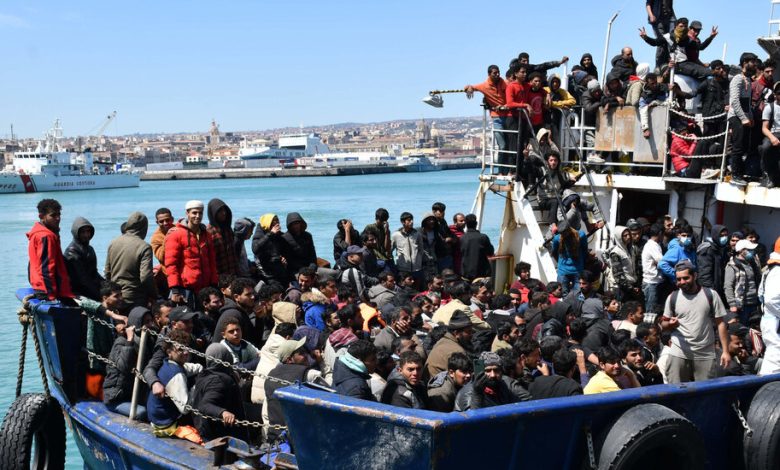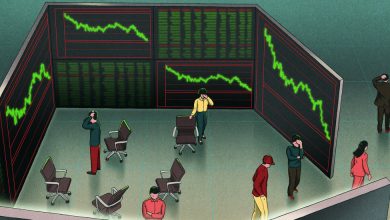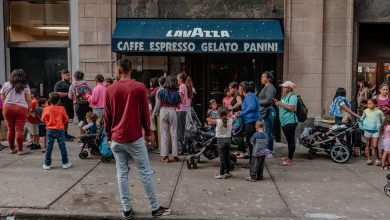Italy’s Senate Signs Off on Meloni’s Migrant Crackdown

Italy’s Senate on Thursday passed the first comprehensive immigration package by the hard-right government of Prime Minister Giorgia Meloni, which would curb integration efforts, create new government-controlled migrant centers to house those waiting on asylum applications and more detention facilities, as well as establish harsher punishment for people smugglers.
Under the new policies, migrants will have to stay in the centers until their asylum applications are processed, which can take up to two years in Italy. While they wait, they will not be able to seek independent lodging and will have a hard time beginning any organic form of integration into communities. Italy is also planning information campaigns in the migrants’ countries of origin to dissuade them from leaving, in exchange for extra visa quotas.
Ms. Meloni leads a coalition whose main parties have strong anti-immigrant agendas. The coalition watered down one of the most contested parts of the package, which would have canceled a program of two-year humanitarian permits for migrants who do not meet the tight criteria of international protection. The move came after criticism of a top adviser to Ms. Meloni who spoke of “ethnic substitution,” as well as pressure from the opposition that raised doubts on compliance with international laws.
Representatives with the center-left Democratic Party have called the measures “punitive,” but they are likely to also pass the lower house, where the governing coalition has a large majority, and become law.
During her campaign, Ms. Meloni made clear that her attention was focused on curbing migrant arrivals and bolstering the employment levels of Italians. Opening Milan Design Week on Tuesday, Ms. Meloni said that rather than relying on migrant labor, Italy needed to employ “the large unused reserve” of women, who in Italy work at record-low levels.
The package also introduced a new crime — people smuggling that results in the death of migrants — punishable by up to 30 years in prison. The measure was conceived after a fatal shipwreck that killed 94 migrants off the coast of southern Italy in February.
The national debate over immigration grew increasingly heated this week, when Parliament began examining the measures, and Ms. Meloni’s government vehemently defended its choices to try to stem migration and prioritize assistance to Italian families to have more children in a country with a steadily declining birthrate.
Speaking to a labor union on Tuesday, Italy’s minister of agriculture and food security and a high-ranking member of Ms. Meloni’s hard-right Brothers of Italy party, Francesco Lollobrigida, said that the low birthrate and insufficient support for Italian families could lead to “ethnic substitution.”
That “is not the way forward,” he said, adding that it was important to combat illegal and unregulated immigration.
Mr. Lollobrigida’s remarks spurred harsh criticism from the opposition. Elly Schlein, the newly elected secretary of the Democratic Party, called them “disgusting and unworthy of a minister.” Ms. Schlein told reporters at a rally in central Rome against the new immigration package that Mr. Lollobrigida’s comments were reminiscent of “white supremacy” theories and the 1930s, when Mussolini’s fascist regime paid economic and welfare incentives to Italians with large families.
Among those at the rally, Abba Soulimani, 46, a worker from Ivory Coast, said that for years she had been picking tomatoes in Italian fields.
“I don’t see many Italians wanting to do my job,” Ms. Soulimani said. “So I don’t understand why the government is so against us.”
Ms. Meloni’s government has acknowledged that foreigners are needed for jobs that companies regularly complain that they have a hard time recruiting for, like agriculture jobs. And official estimates say that migrant workers would significantly help economic development and even aid in lowering Italy’s enormous public debt.
During an online registration day to attain permits for foreign workers last month, requests from Italian companies were more than double the available visas, the authorities said, and the agency’s website crashed trying to take them in.
Ms. Meloni’s government began an overhaul of immigration policies last year, when the Italian authorities decided to impose new rules on charities rescuing migrants in the Mediterranean.
As the number of arrivals has picked up significantly, this month the government declared a six-month state of emergency earlier this month to allot extra funds and speed up procedures to reduce congestion at the small immigration center on the island of Lampedusa, where most migrants have been arriving this year. The government is also building new “structures, suitable both for sheltering as well as the processing and repatriation of migrants who don’t have the requisites to stay,” a government statement read.
Immigration has been a contentious political issue in Italy for decades. The coronavirus pandemic significantly slowed arrivals in recent years, but the number of migrants coming ashore in Italy has quadrupled this year, increasing political tension over how to deal with them. More than 34,700 migrants have arrived so far in Italy, compared with 8,600 in the same period in 2022.





